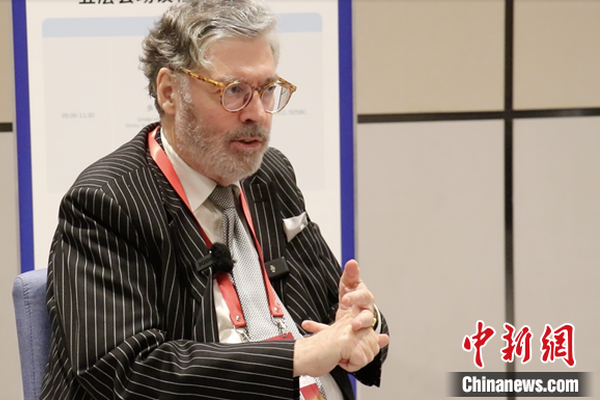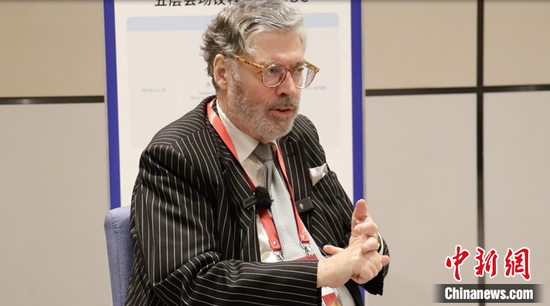Chairman of America-China Partnership Foundation: Understanding China via its development path
By Huang Fang, Shangguan Yun
As the 8th Understanding China Conference is underway in Guangzhou, south China's Guangdong province, a parallel forum titled "Understanding the Chinese Nation: Unity in Diversity for Common Development" was held on Wednesday.
Nearly 20 domestic and international government officials and renowned experts from relevant fields participated. The discussions focused on two themes: "Unity in Diversity and Maintaining the Diversity of Human Civilization" and "Common Development and Building a New Model for Human Progress".

As a guest speaker at the parallel forum, John Milligan-Whyte, chairman of the America-China Partnership Foundation, shared his understanding of China's development over the years.
"China is not just a nation. It's a civilization," he remarked in an exclusive interview with China News Network, noting that China is showcasing its cultural essence to the world under the framework of the Global Civilization Initiative.
When asked about his understanding of China's role on the global stage, he said, "I have been fascinated by China since 1997, because of its people, and it has the most effective, representative, and responsible government in the world."
He commended China's achievements under the leadership of the Communist Party of China (CPC), highlighting its remarkable success in social and economic development since the founding of the People's Republic of China. "China has created social and economic progress at a speed, size, and level of global importance that is unparalleled in human history."
He was impressed by Chinese modernization as a new endeavor aimed to "create common prosperity for all the people." He described it as an extraordinary achievement that offers a new model for modernization.
Regarding the unity of the Chinese ethnic groups, he highly commended the efforts made by the Chinese government to foster harmony and economic development. "China is home to 56 ethnic groups, and the government has led all of them in driving economic development."
Drawing on the philosophy of Confucius, whom he referred as "the father of the notion of a harmonious society," he emphasized China's cultural roots on its governance and societal development. His philosophy not only influenced the society of his time, but also laid a crucial foundation for the formation and development of the Chinese nation, he said.
He mentioned that even within families, not everybody gets along well with each other all the time. "So I'm very impressed with China's ability to create unity in a diverse country of the size of China," he said, commending the government's efforts in creating a cohesive society.
Having traveled extensively across China over the past decades, Milligan-Whyte emphasized China's global outlook. "China is always saying how can we work together," he underscored China's dedication to international cooperation, and its commitment to the Five Principles of Peaceful Coexistence.
He also expressed admiration for the Belt and Road Initiative (BRI), which has fostered international collaboration for mutual benefits. "Everybody needs roads, airports and economic growth," he said, praising the BRI's role in promoting infrastructure development and shared prosperity worldwide.
China's current level of high development and social harmony is attributed to its governance, Milligan-Whyte concluded.
The parallel forum is co-hosted by China Ethnic Pictorial and the Academy of Contemporary China of the World Studies of China International Communications Group.

